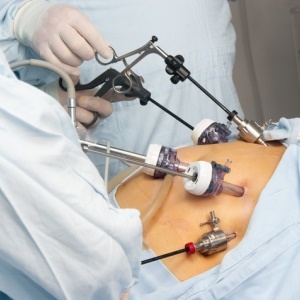
A surgical-site infection develops when germs from your skin or around you enter the incision made in in your skin to carry out the operation.
Globally, more than one in 10 patients develop a surgical-site infection after a gastrointestinal operation, a new study finds.
Important area for improvement
Rates vary widely, with overuse of antibiotics in poorer countries likely contributing to higher prevalence, the researchers said.
"Worldwide, large amounts of antibiotics were consumed to prevent and treat surgical-site infections," said Dr Ewen Harrison, one of the researchers.
"Yet, in a fifth of cases, the causative microorganism was resistant to the pre-surgery antibiotics given, and this increased to one of three cases in low-income countries," said Dr Harrison, of the global surgery unit at the University of Edinburgh in Scotland.
"This high prevalence illustrates a potentially important area for improvement worldwide," Dr Harrison said.
His team analysed data from just over 12 500 patients in 66 countries who had gastrointestinal surgery. About 12% developed a surgical-site infection within 30 days after their operation. But 22% of those infections didn't respond to commonly used antibiotics.
Longer hospital stays
Patients in high-income countries had the lowest rate of infection, at 9%, compared with 14% in middle-income countries and 23% in low-income countries, according to the study.
These infections were deadly in many cases. Death rates were almost 5% for patients with a surgical-site infection and less than 2% for those without an infection, the findings showed.
Hospital stays for those with infections averaged three times longer than for those without infections (seven days versus two days). Also, patients with infections were more likely to have another infection and further surgery, the investigators found.
Rates of antibiotic-resistance varied significantly, with rates reaching 36% in low-income countries. That was more than twice the rate seen in wealthy countries, the study authors said.
This difference could reflect overuse of antibiotics in poorer countries, the researchers suggested. They found that patients in low-income countries were more likely to receive antibiotics before and after surgery than those in richer countries.
'Impressive undertaking'
The findings were published in The Lancet Infectious Diseases journal.
"These findings begin to characterise the relationship between surgical-site infections and global antimicrobial resistance," Dr Harrison said in a journal news release.
Writing in an accompanying editorial, Dr Robert Sawyer, of Western Michigan University School of Medicine, called the study an "impressive undertaking".
The study "substantially adds to our understanding of the global problem of post-operative infections and their associated morbidity and mortality," Dr Sawyer said.
"Although the idea that a surgical-site infection is just a surgical-site infection is prevalent, it is now well known that the cost of a surgical-site infection in terms of mortality, morbidity, health-care costs, and loss of productivity is enormous," he added.
Common-sense ways to help prevent infections after surgery:
- Keep your hands clean.
- Take your antibiotics as prescribed.
- Keep your wound clean and dry.
- Wash your hands before and after caring for your wound.
- Don't put any ointments on the wound.
Image credit: iStock




 Publications
Publications
 Partners
Partners














